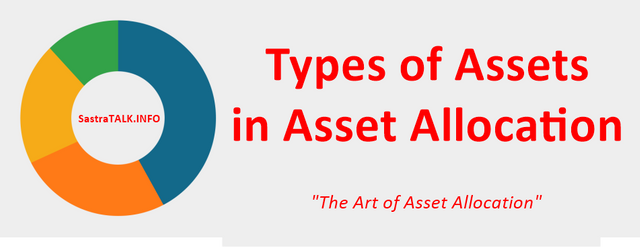
The process of asset allocation involves choosing a portfolio by selecting combinations of investments to meet your specific needs and goals as an investor. This is done by dividing the portfolio among different asset classes. The five main asset classes that make up a typical portfolio include:
Stocks: Stocks represent equity or ownership in a business or company. If you own stock in a company, you own a piece of that company. Stocks have historically produced the highest returns. However, they also carry the most risk, with a tendency towards greater price swings – highs and lows – that makes them more volatile than either bonds or other debt instruments.
Bonds: Bonds are basically loans in which the borrower agrees to pay back principal, plus interest, by a certain time. The borrower’s ability to repay typically impacts the bond’s rate. Bonds are closely tied to changes in interest rates – i.e., when interest rates fall, bond prices rise - and are considered less risky than stocks in general.
Cash: Cash is the most liquid of all asset classes. It can mean cash under your mattress, or in your savings bank account, or in a liquid fund with a mutual fund company.
Gold: Gold has emerged as a key asset class over the past few years, and can be held in the form of jewellery, coins, or the new versions called gold ETF (exchange traded funds).
Real Estate: Real estate includes the property you have as your house or office. For small investors, it represents mostly the house in which they stay.
From time to time, as your life changes, and so do your financial and life goals, it is also important to re-evaluate your asset allocation mix. What makes the asset allocation approach, the approach to long-term investing is it eases the turbulence that happens while investing and empowers you to stay the course to achieve your life and financial goals. When it comes to achieving your life and financial goals, it should never be about market timing, it's about time and having the right asset allocation for you.
[The Art of Asset Allocation - Vishal Khandelwal # Page 8 - 9]
https://www.sastratalk.info/2020/01/types-of-assets-in-asset-allocation-art.html